Q
What's the Amount of Monthly Installment of Toyota Yaris? See Here!
The amount of monthly payment of Toyota Yaris can vary depending on different factors, including the car model (such as the 1.5G, 1.5E, or GR versions), the loan amount (usually 80% - 90% of the car price), the loan term (5 to 9 years), the interest rate (around 2.5% - 3.5%), and the promotional activities of banks or financial institutions.
Take the entry - level 1.5E as an example. If the car price is approximately RM85,000, with a 90% loan to be repaid over 7 years at an interest rate of 3%, the monthly payment will be roughly between RM1,100 and RM1,300. For the GR Yaris (with a car price of about RM180,000), under the same conditions, the monthly payment could reach RM2,300 - RM2,600.
It is recommended to directly consult Toyota - authorized dealers or banks for the latest loan programs, as promotional activities and interest - rate adjustments may affect the actual repayment amount. Before buying a car, you can also compare the loan terms of different banks and evaluate your own financial situation to choose a suitable repayment term.
Special Disclaimer: This content is published by users and does not represent the views or position of PCauto.
Related Q&A
Q
What is the sport mode on a 2019 Toyota Yaris?
The Sport Mode on the 2019 Toyota Yaris is a drive mode selection feature that primarily enhances power response and handling by adjusting the vehicle's electronic control systems. When activated, the transmission delays upshifts to keep the engine in a higher rev range, delivering quicker acceleration, while the steering might feel slightly heavier to improve road feedback. This mode works best for highway overtaking or mountain road driving, letting the 1.5L naturally aspirated engine stretch its legs a bit more. Keep in mind, though, that Sport Mode does bump up fuel consumption slightly, so it's best used for short bursts when you need that extra zip. Rivals like the Honda Jazz or Mazda 2 offer similar modes too, but each has its own tuning—some focus on linear acceleration, others on sharpening cornering stability. Running Sport Mode all the time could speed up wear on the drivetrain, so make sure to check your transmission fluid and engine condition regularly. Also, pairing it with the manual shift function can take the driving experience up another notch.
Q
How to check transmission fluid 2019 Toyota Yaris?
To check the transmission fluid in a 2019 Toyota Yaris, first make sure the vehicle is parked on level ground and start the engine to let the transmission reach operating temperature (usually after driving for 10-15 minutes). Shift through all gears briefly, then return to Park and engage the parking brake. Open the hood and locate the transmission dipstick (typically with a red or yellow handle, near the firewall). Pull out the dipstick, wipe it clean, reinsert it fully, then pull it out again to check the fluid level—it should be within the "HOT" marks. Also inspect the fluid color (normally clear red; if it's black or has a burnt smell, it needs to be changed promptly). Note that some newer Yaris models may have a sealed transmission without a dipstick; these require a professional technician with special tools to check or replace the fluid. Regularly checking the transmission fluid protects the drivetrain effectively. It's recommended to replace it every 40,000-60,000 kilometers or as specified in the maintenance manual. If you frequently drive in stop-and-go traffic, you can shorten this interval slightly. Using non-genuine fluid may cause gear-shifting hesitation or transmission damage, so Toyota's original ATF WS fluid is recommended.
Q
What engine does a 2019 Toyota Yaris have?
The 2019 Toyota Yaris offers a range of engine options across different markets, with specific configurations varying by trim level and regional specs. Common powerplants include a 1.5-liter four-cylinder naturally aspirated engine (badged 1NZ-FE or an updated variant), pushing out around 107 horsepower. This unit pairs with either a 5-speed manual or 4-speed automatic transmission. Higher-spec models might upgrade to a more efficient 1.2-liter turbocharged engine or a hybrid system. Known for reliability and fuel efficiency, this engine uses Dual VVT-i variable valve timing to optimize low-end torque and high-speed power delivery—perfect for city driving. It’s worth noting that the same-generation Yaris also spawned the GR Sport variant, packing a more potent 1.6-liter turbo engine, though these performance models are pretty rare locally. For maintenance, stick to the 10,000 km or 6-month interval for full synthetic oil changes, and regularly clean the throttle body to keep the engine running efficiently. Toyota’s factory 100,000 km warranty is a nice bonus too, helping cut down on long-term repair costs. If you’re eyeing a used Yaris, pay extra attention to the engine mount bushings and timing chain condition—these are common wear items on higher-mileage examples.
Q
Is the 2019 Yaris a Mazda?
The 2019 Yaris isn't a Mazda; it's a classic compact car from Toyota. However, it's worth noting that in some markets like North America, Toyota collaborated with Mazda to launch the Yaris iA (later renamed Mazda2 Sedan), which was based on the Mazda2 platform. But that's different from the Yaris models commonly seen locally. The 2019 Yaris sold locally was still Toyota's independently developed third-generation model (XP150), powered by a 1.5L naturally aspirated engine, focusing on affordability, practicality, and reliability. Its design and technology were all from Toyota, such as standard VSC vehicle stability control and seven airbags for safety. It's important to note that platform sharing or joint production between car brands is common in the industry. For example, Toyota also has technical partnerships with Suzuki and Subaru. Such collaborations help optimize R&D costs and integrate the strengths of each brand, but they don't change the brand ownership of the vehicles. For consumers, when choosing a car, they should focus more on the specific model's configuration, after-sales network, and their own needs rather than just fixating on brand connections.
Q
How many miles per gallon does a 2019 Toyota Yaris get?
Fuel economy for the 2019 Toyota Yaris varies by trim and transmission. According to official figures, the automatic models with the 1.5L four-cylinder engine return around 30 mpg city, 36 mpg highway, and a combined 33 mpg. The manual transmission version is slightly thirstier, checking in at about 32 mpg combined. This car has won over plenty of buyers with its budget-friendly fuel costs and solid reliability, making it a great pick for daily commutes and city driving. Beyond just sipping gas, the Yaris is known for its compact size and nimble handling—perfect for navigating busy urban areas. If you’re really looking to maximize efficiency, keeping your tires properly inflated and avoiding aggressive acceleration or hard braking can help squeeze out a few more miles per gallon. And hey, if fuel economy is your top priority, it might be worth checking out hybrid options too—they typically deliver even better mpg numbers.
Q
What is the fuel efficiency of the 2019 Toyota Yaris?
The 2019 Toyota Yaris delivers impressive fuel economy, with figures varying slightly depending on the trim and transmission. The version equipped with the 1.5-liter four-cylinder engine and CVT transmission averages around 5.6 L/100km in city driving, drops to roughly 4.7 L/100km on the highway, and posts a combined fuel consumption of about 5.1 L/100km. That kind of efficiency makes it a solid pick for both daily commutes and longer road trips without breaking the bank at the pump. It’s worth keeping in mind that fuel efficiency can be influenced by driving habits, road conditions, and vehicle maintenance. Sticking to smooth acceleration, avoiding sudden braking, and keeping up with tire and engine maintenance can all help squeeze even more miles out of each tank. As a compact car, the Yaris has long been popular for its reliable performance and low upkeep costs, and its fuel economy stacks up well against competitors in its class. If you’re really looking to maximize fuel savings and eco-friendliness, the hybrid version is worth checking out—it takes fuel efficiency to an even higher level.
Q
Is a 2019 Toyota Yaris a good car?
The 2019 Toyota Yaris is a solid all-around subcompact that’s perfect for daily commuting. It carries on Toyota’s reputation for reliability and durability, with a smooth 1.5L naturally aspirated engine that delivers great fuel economy—ideal for city driving. While the interior isn’t the roomiest, the layout is smart, and there’s enough storage space for everyday needs. The cabin materials prioritize functionality over flash, and in terms of features, you get basic safety gear like ABS and airbags, with higher trims possibly adding nice-to-haves like a backup camera. Maintenance costs are reasonable, parts are easy to come by, and it holds its value well as a used car. If you’re on a tight budget and value practicality and dependability, the 2019 Yaris is definitely worth a look. The subcompact segment is pretty competitive, though—besides the Yaris, check out rivals like the Honda Jazz or Mazda 2. They each have their own strengths, whether in handling or interior design, so it’s a good idea to test-drive a few and see which fits your needs best before deciding.
Q
Is the 2019 Yaris a reliable car?
The 2019 Yaris holds up pretty well in terms of reliability. It carries on Toyota's usual reputation for durability, with that tried-and-true 1.5L naturally aspirated engine under the hood. Maintenance costs are pretty reasonable, making it a solid pick for daily commuting. The transmission shifts nice and smoothly, and the suspension setup leans towards comfort, which works well for local road conditions. The interior space isn't exactly cavernous, but the storage solutions are practical. Fuel economy is another plus – it's pretty efficient, so you'll save a decent amount on gas over time. When it comes to keeping it reliable, make sure to keep up with regular maintenance records, especially things like transmission fluid and brake upkeep. Those little details really affect how the car holds up long-term. If you're looking at the used market, the 2019 Yaris has decent resale value, but when checking one out, pay extra attention to the electrical system and suspension components. Those can turn into problem areas if they haven't been properly maintained. Compared to its peers, it has a relatively low failure rate, but even so, holding onto complete service records after buying will help keep it running at its best.
Q
How much is a 2019 Yaris?
The 2019 Toyota Yaris typically ranges from around RM50,000 to RM70,000 in the used car market, with prices varying based on condition, mileage, trim level, and location. The higher-spec 1.5L Sport variant or hybrid models might edge closer to RM80,000. Known for its reliability and fuel efficiency, this car’s 1.5L Dual VVT-i engine paired with a CVT transmission works great for city driving. Maintenance costs are reasonably affordable too, making it a top pick for many families. When buying used, it’s smart to check service records and accident history—factory-certified used cars are your best bet for quality. Keep an eye out for warranty offers from Toyota or authorized dealers; these vehicles usually go through strict inspections and come with extra coverage. Plus, the Yaris holds its value well for a subcompact, so you won’t take a huge hit when reselling later. If you’re on a tighter budget, 2018 or 2020 models are worth considering—they’re pretty similar in features but might be more budget-friendly.
Q
How much is a 2019 Yaris worth?
The 2019 Toyota Yaris is currently fetching prices in the used car market ranging from approximately RM55,000 to RM75,000. The exact price depends on factors like condition, mileage, trim level, and service history, with higher-spec 1.5L Sport variants or hybrid models usually commanding a premium. This car is known for its reliability and fuel efficiency, making it perfect for city commuting. Its 1.3L or 1.5L engine delivers smooth power, and maintenance costs are relatively low. With a strong presence in the used car market, parts are readily available, ensuring easy follow-uprepairs. When buying, it's advisable to check for complete service records, pay special attention to the transmission and chassis condition, and consider using a third-party inspection service to verify the car's condition and avoid accident-damaged or flood-affected vehicles. Additionally, keep an eye on the expiry dates of road tax and insurance, as these can impact the final transaction price.
Popular Cars
Model Year
Car Compare
Car Photo
Latest Q&A
Q
How much is the 2024 Vanquish?
The specific selling price of the 2024 Aston Martin Vanquish has not been officially announced yet, but based on the market positioning of the previous generation model and supercars in the same class, the starting price is expected to be between RM1.5 million and RM2 million, and the specific price will fluctuate depending on optional configurations and tax rates. As Aston Martin's flagship GT sports car, Vanquish is typically equipped with a V12 engine with a power output of over 600 horsepower, and features a carbon fiber structure and luxurious handmade interior that balances performance and comfort. It should be noted that these high-end sports cars often require advance booking and long delivery cycles. It is recommended to directly contact authorized dealers for the latest information, including customization options and financial solutions. In the same price range, models such as Ferrari Roma or Bentley Continental GT can also be considered, each with its own characteristics. For example, Roma leans more towards sporty handling, while Continental GT emphasizes luxury travel experience, and consumers can choose according to their own needs.
Q
What engine is in the Vanquish 2024?
The 2024 Vanquish is expected to pack a fortified 5.2-liter V12 twin-turbocharged engine, sourced from Aston Martin’s flagship powertrain lineup. With power likely bumped to around 700 horsepower and torque peaking at 800 Nm, it’s paired with an 8-speed automatic transmission—balancing blistering performance with seamless shifts.
The aluminum block and twin-scroll turbos keep weight in check while sharpening throttle response, and cylinder deactivation helps with fuel efficiency when you’re not chasing the horizon. As Aston’s GT flagship, the Vanquish’s tuning prioritizes low-end grunt, making it equally at home on cross-country hauls or twisty mountain passes.
Worth noting: these big-displacement turbo engines handle tropical climates with ease, thanks to cooling systems specifically tweaked for high-temperature resilience—critical when pushing hard. For those craving extra edge, optional carbon-ceramic brakes and rear-wheel steering dial up the agility, ensuring composure even when the roads get unpredictable.
Q
What does a 2024 Aston Martin cost?
The 2024 Aston Martin lineup sees significant price variations depending on model and specifications. The entry-level Vantage starts at approximately RM1 to 1.2 million, while the DB12 ranges between RM1.5 to 1.8 million. Flagship performers like the DBS 770 Ultimate or limited-run Valhalla can easily surpass RM3 million. These figures typically cover base configurations, though costs rise with optional performance packs, bespoke interiors, or specialty paintwork.
As a handcrafted British luxury marque, Aston Martins feature either uprated 4.0L V8 twin-turbo or 5.2L V12 powertrains, paired with cutting-edge tech like intelligent suspension and digital cockpits. Buyers should consult authorized dealers for exact configurations—the brand’s personalization program allows extensive customization of materials and finishes.
Pro tip: Factor in elevated insurance and maintenance costs. These high-performance machines follow specialized service schedules, so review aftersales policies beforehand. Always confirm final pricing with your dealer, as options dramatically impact the bottom line.
Q
How much is the 2024 Aston Martin Vanquish?
The specific selling price of the 2024 Aston Martin Vanquish has not yet been officially announced by the official, but based on the pricing strategy of the previous generation model and brand, it is expected that the starting price will remain in the range of 300000 to 400000 US dollars, and the specific price will be adjusted according to optional configurations and exchange rate fluctuations. As the flagship GT sports car of the brand, Vanquish continues the classic British design language, equipped with an enhanced V12 engine with a maximum power of over 600 horsepower, and equipped with a new generation of adaptive suspension and carbon fiber body technology, achieving a balance between luxury and performance. It is worth noting that these ultra luxury models are usually produced on an order basis with a long delivery cycle. It is recommended to obtain customized quotes through authorized dealers. Competitors in the same class include Ferrari Roma and Bentley Continental GT, but Vanquish emphasizes the combination of long-distance comfort and driving pleasure. Its iconic grille design and hand sewn interior craftsmanship also continue the brand's unique recognition.
Q
Does the 2019 Kia Cerato have Apple CarPlay?
The 2019 Kia Cerato did come equipped with Apple CarPlay, which was a pretty standard tech feature for its class at the time. It lets you mirror your iPhone’s navigation, music, and calls onto the car’s display via USB—handy for keeping things safe and convenient on the road. Android Auto was also onboard, so it covered both major phone ecosystems. The 8-inch touchscreen was responsive, with a clean interface that made it easy to use.
Just a heads-up: for the best CarPlay experience, make sure your iPhone’s OS is compatible and use an original cable. Back in 2019, rivals like the Toyota Corolla and Honda Civic offered similar tech, but the Cerato stood out for its value, especially if you wanted solid features without overspending. If you run into any hiccups with CarPlay, the owner’s manual or a dealership visit should sort you out.
View MoreRelated News
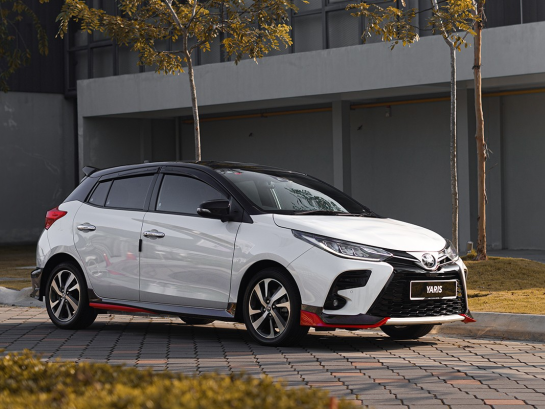
Toyota Yaris Interior Design Revealed: The Ideal Choice for Daily Commutes
AshleyJul 17, 2025
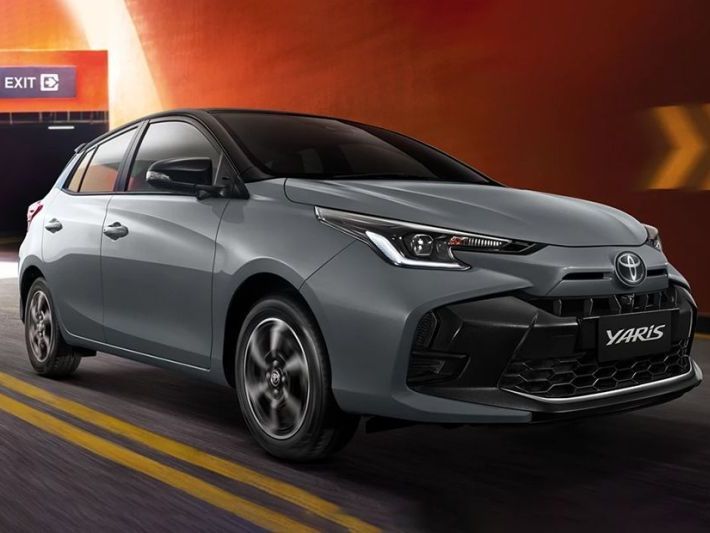
Highlights of the Toyota Yaris: The Perfect Fusion of Outstanding Power and Comfortable Handling
MichaelApr 16, 2025
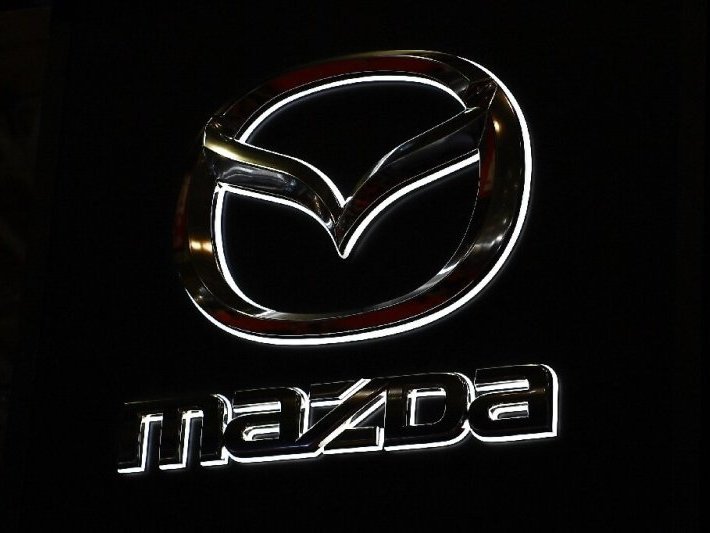
Mazda Plans to Launch CX-20 in Southeast Asia to Compete with Toyota Yaris Cross
RobertMar 20, 2025
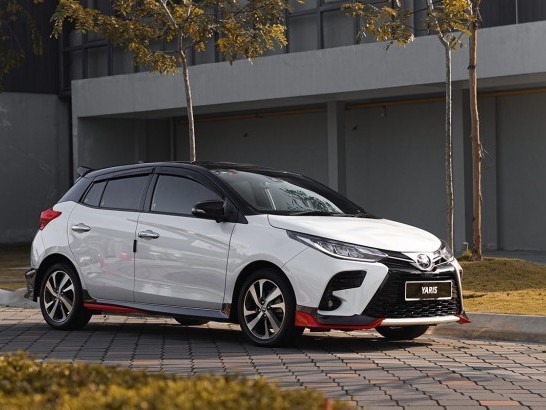
Is my Yaris fuel consumption normal? What should the fuel consumption per 100km be?
MichaelFeb 28, 2025

Toyota takes the crown at the second stop of the 2025 WRC, the GR Yaris helps Toyota take the top of the points table
JamesFeb 19, 2025
View More


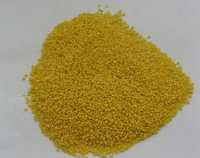

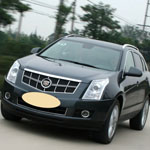







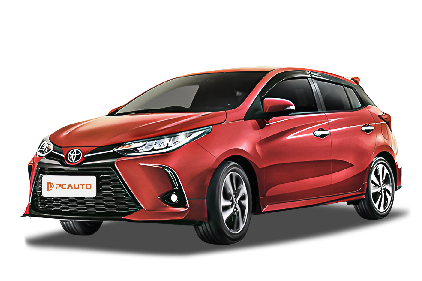




Pros
Cons